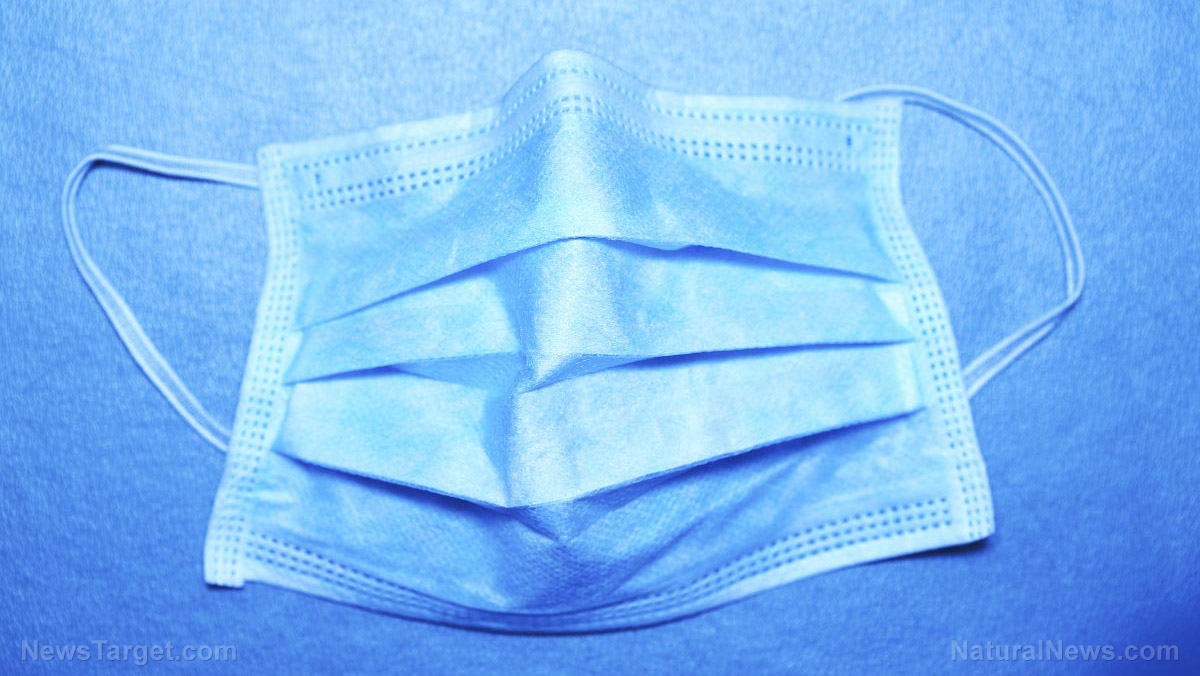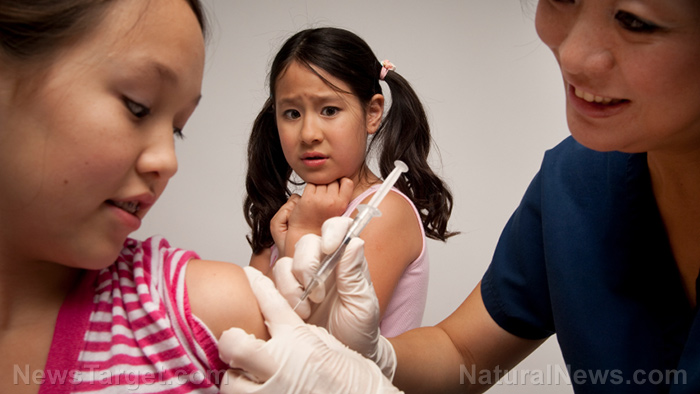Disposable face masks, PPE contributing to worsening global plastic pollution problem, warn environmentalists
03/24/2021 / By Divina Ramirez

The coronavirus pandemic has triggered a surge in the use of face masks, rubber gloves and personal protective equipment (PPE). Now, environmentalists are sounding the alarm over the immense threat that these coronavirus-related waste products pose to both ocean health and marine life.
One of the organizations seeking to raise awareness on the environmental effects of improperly disposed face masks and PPE is GEA Sustainability ESCP, a cross-campus, student-led organization at the ESCP Business School based in Paris.
On Jan. 20, the organization hosted an online event titled “More Masks Than Jellyfish” to discuss the impact of the coronavirus pandemic on marine life. The discussions touched on ocean pollution caused by disposable coronavirus-related products, such as single-use face masks and PPE.
Matthew Brkic, associate director at Boston Consulting Group (ECG), joined the event as a guest speaker. Brkic lauded the students in attendance for their “incredible amount of ambition” and time, both of which would prove valuable when working to solve a plastic pollution problem made worse by face masks and PPEs.
Meanwhile, speaking of the face mask pollution problem, Laurent Lombard of the French environmental group Operation Mer Propre said in a Facebook post that humans could soon run the risk of having more face masks than jellyfish in oceans. His post included a video of a diver underwater showing algae-entangled face masks.
Face masks are polluting the ocean
In January, the Hong Kong-based marine conservation organization OceansAsia also released a report warning that the over 1.5 billion face masks produced in 2020 would inundate the world’s oceans. Even so, that number represents just a small fraction of the eight to 12 million tons of plastic that enter oceans every year.

Unfortunately, those face masks will remain in the water for quite a while. Because masks are made with tiny, synthetic fibers like polyester, they can take roughly 450 years to degrade, all while releasing toxic chemicals into the water. Marine animals might then end up ingesting these plastic microfibers and toxic chemicals.
Teale Bondaroff, lead author of the report and director of research at OceansAsia, said that the increased use of plastic face shields and PPE also likely led to more plastic waste that could enter aquatic environments.
Bondaroff and his colleagues at the organization began their research after visiting an isolated beach in a group of islands southwest of Hong Kong late last February. They found face masks washed up on the beach and found more masks with each subsequent visit. This would go on for months.
He also noted that most of the face masks were shredded and covered in algae. Marine animals like fish may mistake such partially degraded masks as food and consume them as a result.
Face masks are poised to become the next plastic problem
Organizations like OceansAsia and Operations Mer Propre began sounding the alarm about soiled masks in the environment last year. In May of 2020, divers with Operation Mer Propre found what they described as “COVID waste” off France’s Meditteranean coast. This waste included face masks, gloves and empty bottles of sanitizer.
Scientists with the organization were concerned that the recent emergence of such waste hinted at a newer type of plastic pollution, one set to become ubiquitous as millions around the world turn to single-use plastic products to avoid contracting the dreaded coronavirus.
In fact, according to a commentary article recently published in Frontiers of Environmental Science and Engineering, single-use face masks are a ticking time bomb for the environment.
According to co-author Elvis Xu, an environmental toxicologist from the University of Southern Denmark, such masks could accumulate in nature and release chemicals. These soiled, disposable masks could release pathogenic microbes as well. Therefore, these masks pose a threat to both human and environmental health.
Unfortunately, face masks are now being produced at an unprecedented rate. (Related: Environmentalists concerned over how increased use of face masks and PPEs will contribute to worldwide problem of plastic pollution.)
China, now the biggest face mask producer in the world, increased its production by a factor of 10 last March to meet the surge in demand, according to the article. That alone put the production of disposable face masks on a similar scale as plastic bottles. But unlike masks, plastic bottles can be reused. Moreover, 25 percent of all plastic bottles produced are recycled. Face masks cannot and should not be recycled for hygiene reasons.
The article outlined a number of things that citizens, government officials and scientists can do to minimize the impact of face masks on the environment. These include designating mask-only garbage bins, using reusable face masks and developing disposable masks made with biodegradable materials.
Go to Environ.news to learn more about the environmental impact of face masks.
Sources include:
Submit a correction >>
Tagged Under:
clean water, coronavirus, covid-19, environment, face masks, marine life, ocean life, Oceans, pandemic, plastics, PPE
This article may contain statements that reflect the opinion of the author


















